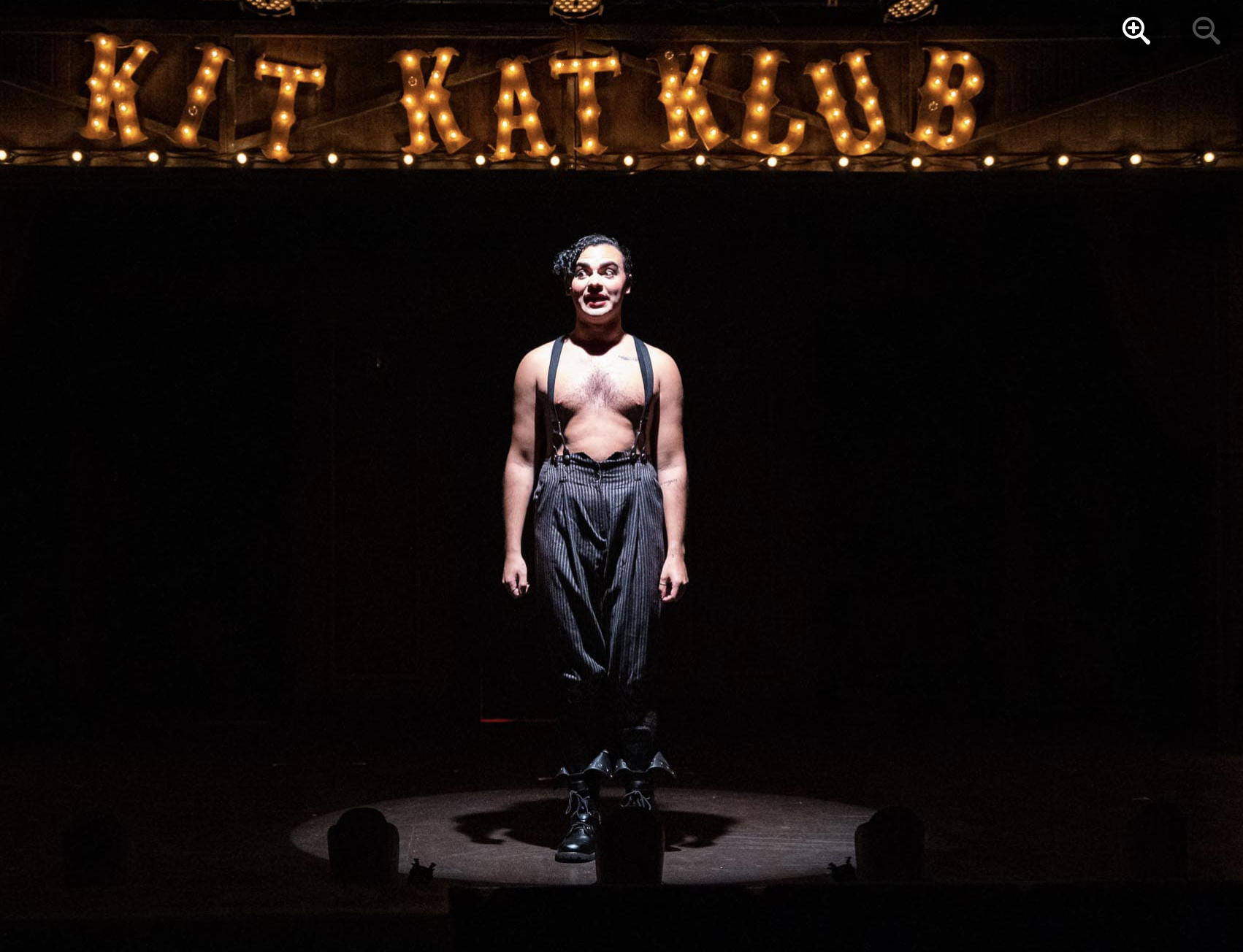Anthony Chase
Second Generation Theatre has taken on one of the greats of the American musical theater and nailed it. Under the masterful direction of Kristin Bentley, this production of “Cabaret,” the 1966 musical adaptation of Christopher Isherwood’s “I am a Camera,” by playwright Joe Masteroff with music by John Kander and lyrics by Fred Ebb, is swift, economical and pointedly focused. “Cabaret” tells the disturbing tale of how fascism destroys the lives of some innocent and well-meaning people.
No. “Cabaret” is not a show for those who need their musicals to be mindless or comforting. Set in Weimar-era Berlin, the play centers on the residents of a rooming house operated by Fraulein Schneider, a widow, during the rise of the Nazis and violent antisemitism. Seeing this show the night after the first hearing on the events of Jan. 6 was a sobering experience, and that’s the point of “Cabaret.” This is a cautionary tale. In that Brechtian way, we are intended to watch these characters from long ago, and think about ourselves. The scenery for the original Broadway production featured a giant mirror in which the audience could see its own reflection.
The characters who inhabit Fraulein Schneider’s house include Clifford Bradshaw, an aspiring novelist from America; Fraulein Kost, who pays the rent through prostitution; and Herr Schultz, a Jewish fruit seller who is in love with the landlady. Finally, an English cabaret singer, Sally Bowles, moves in with Clifford when she loses her job.
The charismatic Steve Jakiel and Pamela Rose Mangus are the emotional center of “Cabaret” at Second Generation Theatre.
Mark Duggan
The sleazy Berlin cabaret where Sally works serves as counterpoint and mirror to the world of the play. The proceedings are overseen by a master of ceremonies played by Joe Russi who performs a succession of musical numbers, each of which makes an incisive comment on the lives of the other characters.
Cabaret has undergone three revisions since 1966. New material was written for the 1972 film starring Liza Minnelli, and in 1998, songs from the film were incorporated into this version, while other songs were nixed, and a number cut before Broadway was restored. This script also explores Clifford’s ambiguous sexuality, an element that was absent in 1966.
The contribution of Bentley’s production lies in the calibration of traditional musical theater elements among the secondary characters, and more expressionistic elements, which are brought front and center. The Emcee, an equal player with Sally in many productions, emerges in this staging as the central narrator of the story, and Sally, famed for her triviality, is revealed to be a deeply troubled person.
Russi is fabulous as the mischievous and decadent Emcee. The frivolity usually assigned to Sally is relegated entirely to him in this production, and his performance swings wildly from frolicsome to the searing. He makes this show his own in a commanding yet playful fashion.
Cassie Cameron, who plays Sally, is a first-rate actress. In the musical milieu, as Sally’s situation becomes more desperate, she pushes her cabaret numbers to startling extremes. Not everyone shares my fascination with the deployment of ugly theatrical gestures, but I was drawn to Cameron’s harsh and nearly frantic interpretations of such songs as “Mein Herr” and the titular “Cabaret.” The actress makes us understand that Sally’s air of carefree superficiality is clearly a disguise, hiding her anguish and terror. This is a stunning and original performance.
The emotional center of the production lies squarely in the charismatic hands of Pamela Rose Mangus and Steve Jakiel who are perfection as Schneider and Schultz. The garish world of the cabaret finds its opposite in the fruit merchant’s latter life wooing of his no-nonsense landlady. They are adorable and handle their old-style musical numbers masterfully.
I greatly admired the clarity and intensity of Dan Urtz’s performance as Clifford, a man with his head squarely on his shoulders’ but who is an emotional wreck, unable to conquer his inner confusion and vulnerability. Urtz handsomely gives us a classic leading man who has all the fragility and emotional ambiguity of a film noir hero.
Amy Jakiel is excellent as pragmatic Fraulein Kost, as is Steve Brachmann as chillingly smug Ernst Ludwig.
The simplified set by Primo Thomas allows Bentley to effect impressively quick and seamless transitions. Chris Cavanagh’s stark lighting is hauntingly marvelous. Choreography by Kelly Copps evokes the tone and period, and advances the story while still being inventive and original as performed by an impressive lineup or Kit Kat girls and boys. Music direction by Allan Paglia, including a terrific band, is outstanding.
It is thrilling to see the greatest of the Kander and Ebb musicals endure. It began life at a time when Sally’s green fingernail polish was shocking and has successfully evolved and made the transition to a time when the actors specify their pronouns and even green hair isn’t shocking. Nonetheless, its cautionary tale is frighteningly contemporary and urgent. Second Generation is giving the show a superior outing, disturbing in all the right ways.
Review
“CABARET”
4 stars (out of 4)

